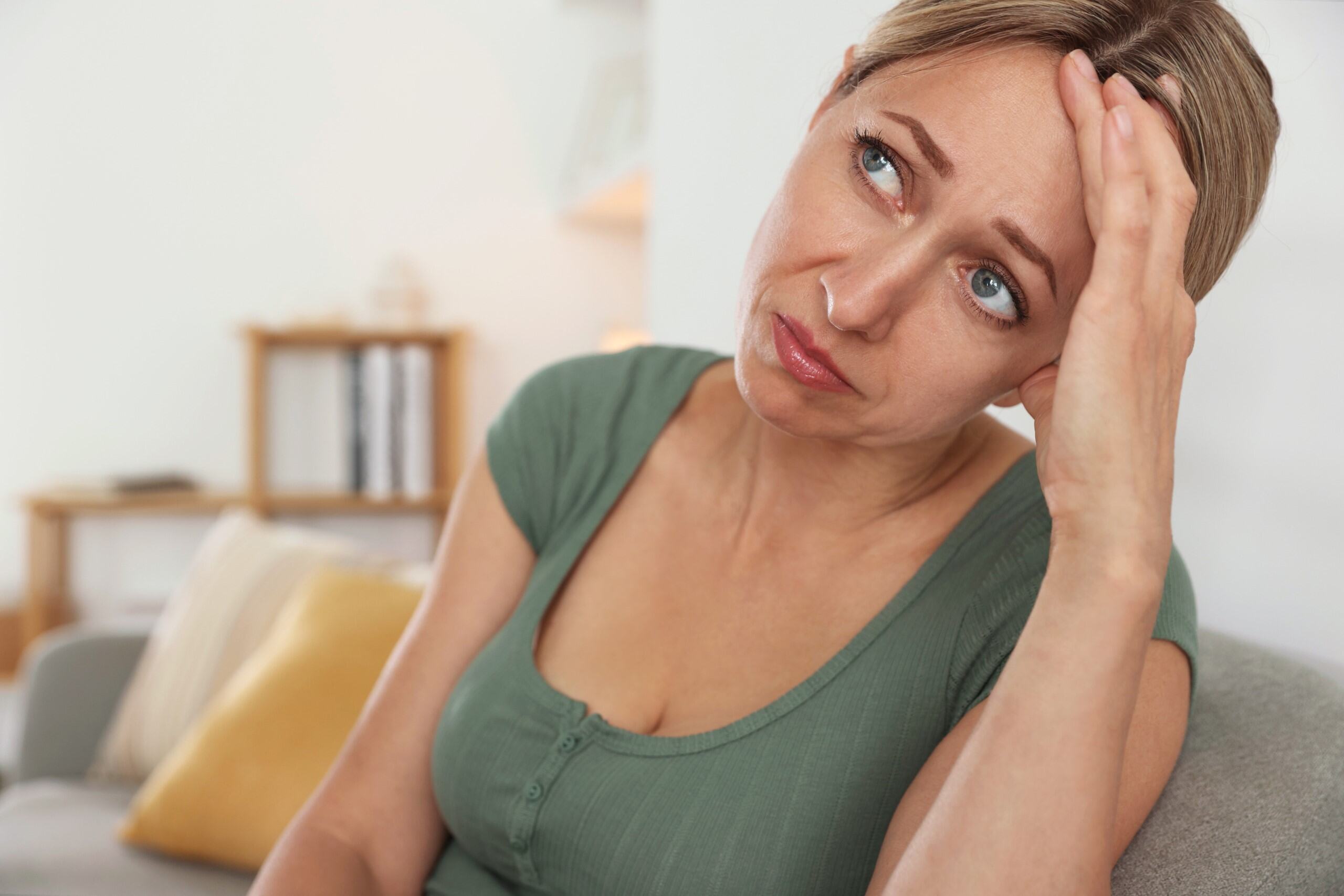Emättimen kuivuus: Nauti seksuaalisuudestasi ilman epämukavuutta

Emättimen kuivuus on yleinen mutta usein vaiettu vaiva, joka voi vaikuttaa kaiken ikäisiin naisiin. Se tarkoittaa, että emättimen limakalvot eivät tuota riittävästi kosteutta, mikä voi aiheuttaa epämukavuutta, kirvelyä, kutinaa ja jopa yhdyntäkipua. Limakalvojen kosteuden vähentyessä emätintä suojaava luonnollinen tasapaino horjuu, mikä voi johtaa myös herkkyyteen infektioille ja tulehduksille.
Vaikka emättimen limakalvojen kuivuminen liitetään usein vaihdevuosiin, sitä voi esiintyä myös nuoremmilla naisilla. Monet tekijät, kuten hormonaaliset muutokset, stressi, tietyt lääkkeet ja jopa elämäntavat, voivat vaikuttaa emättimen kosteustasapainoon. Jos emättimen kuivuus jatkuu pitkittyneesti ilman hoitoa, se voi merkittävästi vaikuttaa naisen hyvinvointiin ja seksuaaliseen haluun.
Koska emätin on luonnostaan joustava ja sen limakalvot sopeutuvat erilaisiin tilanteisiin, kuivuusoireiden ilmaantuessa ne voivat tuntua erityisen epämiellyttäviltä. Kuivuus voi myös vaikuttaa itsetuntoon ja parisuhteeseen, sillä epämukavuus ja yhdyntäkipu voivat vähentää halua olla intiimissä kanssakäymisessä kumppanin kanssa. Ongelman yleistyvyydestä huolimatta moni nainen ei uskalla hakea apua tai edes keskustella asiasta, vaikka tehokkaita hoitokeinoja on olemassa.
Mistä emättimen kuivuus johtuu?
Emättimen limakalvojen kuivuminen johtuu ensisijaisesti estrogeenitason laskusta, mutta se voi olla seurausta monista eri tekijöistä. Estrogeeni on hormoni, joka vastaa emättimen kosteuden säätelystä ja kun sen tasot laskevat, limakalvot ohenevat ja menettävät kimmoisuuttaan. Ilman riittävää estrogeenitasoa emätin kuivuu ja herkistyy ulkoisille ärsykkeille.
Tavallisimmat syyt emättimen kuivuudelle:
- Vaihdevuodet: Kun naisen keho lopettaa luonnollisen estrogeenin tuotannon, limakalvot kuivuvat ja ohenevat.
- Raskaus ja imetys: Raskauden ja imetyksen aikana hormonitasapaino muuttuu merkittävästi, ja estrogeenitasot saattavat olla normaalia matalammat.
- Ehkäisymenetelmät: Jotkut hormonaaliset ehkäisypillerit ja -kierukat voivat vaikuttaa limakalvojen kosteuteen ja aiheuttaa kuivuusoireita.
- Lääkkeet ja sairaudet: Tietyt lääkkeet, kuten masennuslääkkeet, antihistamiinit ja syöpähoidot, voivat vaikuttaa limakalvojen kosteuteen.
- Elämäntavat: Tupakointi, runsas alkoholin käyttö ja epätasapainoinen ruokavalio voivat vaikuttaa negatiivisesti emättimen limakalvojen terveyteen.
- Stressi ja mieliala: Korkea stressitaso ja ahdistus voivat vaikuttaa kehon hormonitoimintaan ja heikentää seksuaalista halua sekä emättimen luonnollista kosteutta.
Miten emättimen kuivuus ilmenee?
Emättimen kuivuus voi esiintyä eri muodoissa ja eri asteisena. Joillakin naisilla oireet ovat satunnaisia ja lieviä, kun taas toiset kärsivät kroonisesta kuivuudesta, joka vaikuttaa voimakkaasti elämänlaatuun.
Eri muodot:
- Ohimenevä kuivuus: Voi esiintyä stressin, kuukautiskierron muutosten, lääkkeiden tai ehkäisyn vaikutuksesta.
- Pitkäaikainen kuivuus: Jos kuivuus jatkuu kuukausia tai vuosia, se voi olla merkki hormonaalisista muutoksista tai kroonisesta sairaudesta.
- Yhdyntäkipuun liittyvä kuivuus: Jos kuivuus aiheuttaa yhdyntäkipua, se voi vähentää seksuaalista halua ja vaikuttaa parisuhteeseen sekä intiimielämään.
Vaiheet:
- Lievä kuivuus: Oireet ovat ajoittaisia, mutta eivät vaikuta merkittävästi elämänlaatuun. Voidaan usein hoitaa kosteuttavilla voiteilla tai luonnollisilla keinoilla.
- Kohtalainen kuivuus: Yhdyntä voi tuntua epämukavalta ja limakalvojen herkkyys ärsytykselle kasvaa. Tarvitaan säännöllistä hoitoa, kuten emätinpuikkoja, EMSELLA-hoitoa tai hormonivalmisteita.
- Vaikea kuivuus: Jatkuva kipu, polttava tunne ja jopa haavaumat voivat muodostua, jos kuivuus on pitkittynyttä ja hoitamatonta. Vaatii usein lääketieteellistä hoitoa ja säännöllisiä toimenpiteitä.
On tärkeää huomata, että jokainen nainen kokee emättimen kuivuuden eri tavoin. Osa naisista ei koe kuivuusoireita lainkaan, kun taas toisille ne voivat olla merkittävä haitta päivittäisessä elämässä. Hyvä uutinen on, että erilaisia hoitokeinoja on runsaasti saatavilla, ja oikeanlaisen hoidon avulla oireista voidaan päästä eroon tai vähintään lievittää niitä huomattavasti.

Hoitomuodot emättimen kuivuuteen
- EMSELLA-hoito: Erityinen laitehoito, joka käyttää sähkömagneettista stimulaatiota lantionpohjan lihasten vahvistamiseen. Voidaan käyttää parantamaan emättimen verenkiertoa ja kosteustasapainoa.
- Liukuvoide: Nopeavaikutteinen ratkaisu yhdyntäkipuun; kostuttaa emätintä tilapäisesti.
- Emätinpuikot: Sisältävät kosteuttavia ja hoitavia ainesosia, joita voi käyttää säännöllisesti.
- Emätintabletit: Hormonittomat tai hormonipitoiset vaihtoehdot, jotka auttavat palauttamaan limakalvojen kosteuden.
- Hormonihoito: Suun kautta otettavat tai paikallisesti vaikuttavat hormonivalmisteet, jotka tasapainottavat estrogeenitasoja.
- Paikallinen hormonikorvaushoito: Emättimeen suoraan annosteltava hoito, joka auttaa suoraan kuivuuden aiheuttamaan epämukavuuteen.
- Elämäntapamuutokset: Riittävä nesteytys, terveellinen ruokavalio ja liikunta voivat tukea emättimen hyvinvointia.
MESQ®
DoctusPlus Oy:n aputoiminimi
Yritys
DoctusPlus Oy
Y-tunnus
3154088-6
Käyntiosoite
Itämerenkatu 11-13 F, 00180 Helsinki
Puhelin
Sähköposti
Aukioloajat
Ma – Pe 11:00 – 19:00